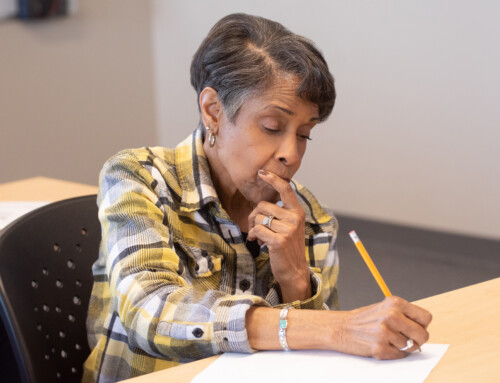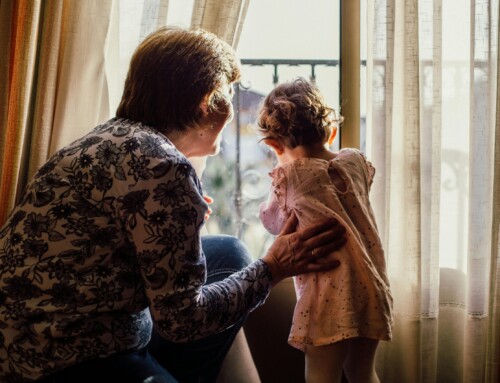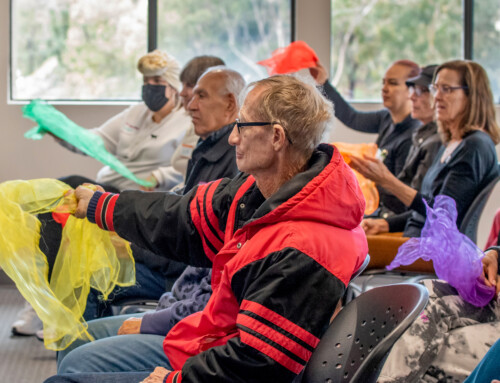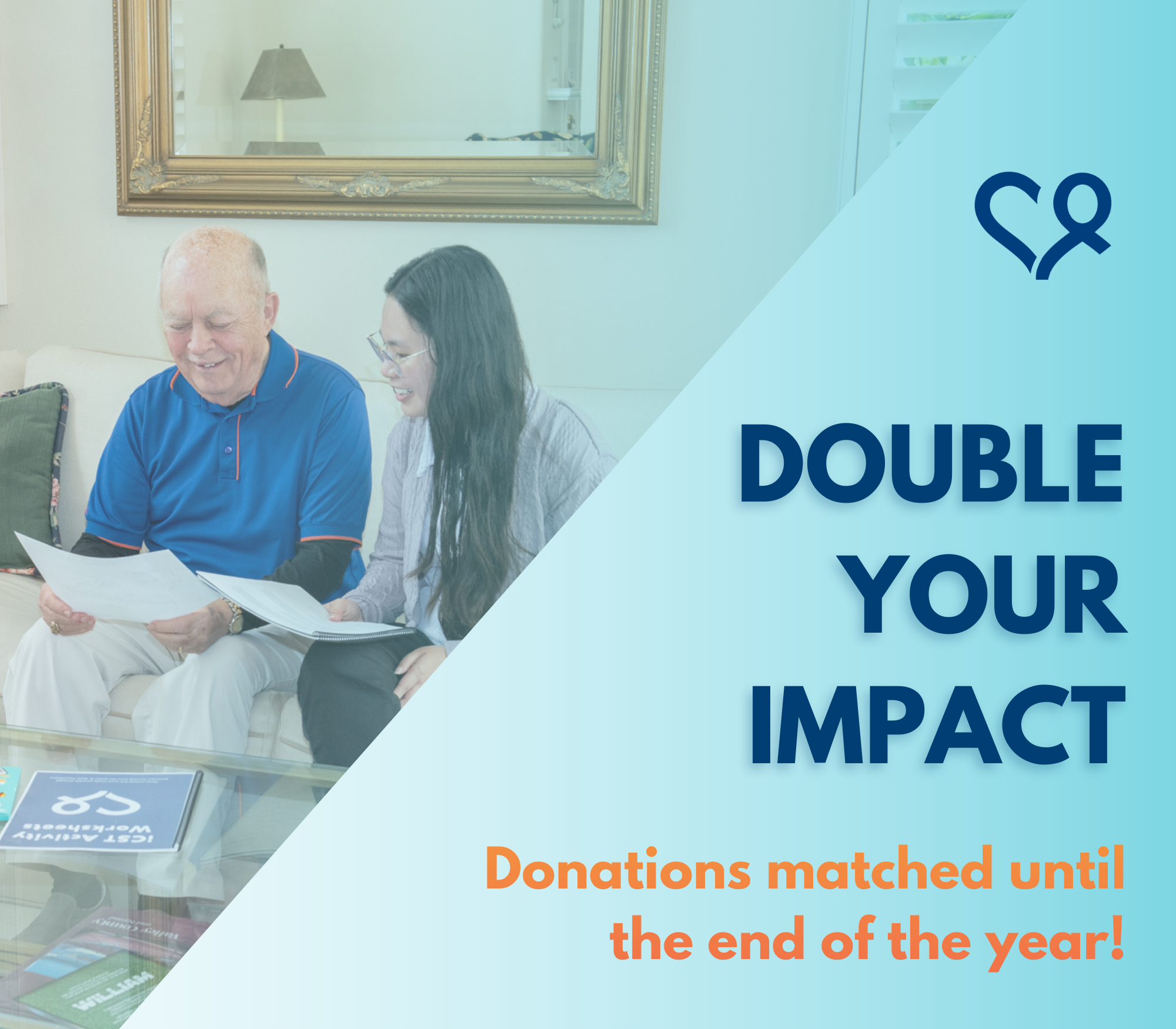By Marcie Hanna, MSW, LCSW
 Did you know that Social Workers were called Friendly Visitors in the late 1800’s? Fast forward to 2019, and Social Workers are still “friendly visitors” in addition to many other roles.
Did you know that Social Workers were called Friendly Visitors in the late 1800’s? Fast forward to 2019, and Social Workers are still “friendly visitors” in addition to many other roles.
At Alzheimer’s San Diego, I get to know our families during ALZ Companions respite assessments and provide ongoing support as needed. I have the privilege of visiting with them in their homes while doing so.
Each time I head out the door, I want to make sure nothing I say or do will upset the person living with dementia. This may mean coming up with a back story for who I am or why I’m there! Quite a few of the families I visit ask me to not mention the disease or where I work, and to only give my name when I leave a voice message. But even with these precautions, natural curiosity has led to some creative tales.
RELATED | Become an ALZ Companion
I’ve played several different parts to ensure our clients are comfortable and respected during an assessment. Some of my favorite impromptu roles include being a stained glass student, a daughter’s high school friend and a new member of the church choir. Thankfully, I’ve never been asked to sing as that surely would have given me away! Even better, I am happy to report that I have never been thrown out of a home, leaving my reputation as the friendliest of visitors intact.
But even the most pleasant of visits are tinged with sadness. Every day – and especially as Valentine’s Day approaches – I am reminded how this brain disease changes relationships. Being in a family’s home, where they are most comfortable, I’m able to experience the intimacy of their relationship on a deep, authentic level.
It’s inside the home where I hear: “Marcie, we have been married 47 years…please tell me there won’t be a time when he doesn’t know who I am.” Or: “I am doing really well matching her outfits and putting on a little makeup, but look at her hair…help me!” And, tearfully: “It has been years since I received a Valentine’s card, or birthday present.” We are eye-to-eye, genuine and raw, heartbreaking and heartwarming as we talk through some of the most difficult transitions a partner can ever face.
We know that dementia affects relationships – even the strongest can experience strain. As a person’s memory, thinking, personality and physical function change, so can intimacy in relationships. Simple things like a casual conversation can become more difficult, and often lead to misunderstandings, arguments and even conflict where it has never been present. Unexpected changes in sexual interest and attraction are confusing and can produce guilt. These feelings and circumstances are normal.
Alzheimer’s San Diego held a special workshop called Changing Relationships and Intimacy that focused on common frustrations, guilt and fears experienced by spouses and partners. Here are some pearls of hope and wisdom of how to manage these tough changes:
- Identify the ways that you uniquely give and receive love and affection with each other, and focus on those abilities that remain: enjoying music, sharing food, reminiscing, doing things to help each other or saying kind words
- Adapt your rituals of intimacy as symptoms require, including the timing, location, frequency, or intensity of physical experience; remember the joys of kissing, holding hands, and massage
- Enjoy the moments, even if they may not become memories – continue to share experiences, and laugh together as often as you can
- Anticipate difficult periods of adjustment and grief, and forgive yourself and your partner for emotional reactions to the change you are experiencing
- Find companionship and connection in other areas of your life as well, through friends, family, and recreational activities
- Acknowledge the complexities of loving someone with dementia, and get the help you need through education, support and discussion groups, mental health services and regular respite
RELATED | Upcoming classes & workshops
Change is inevitable with this disease, and life transitions can feel overwhelming. The dementia experts at Alzheimer’s San Diego are here to support, advise and connect you with the resources you need.
We are often asked how hard it is to navigate the complex, heartbreaking issues around dementia day in and day out. I think that I can speak for my colleagues and acknowledge yes, it can be difficult! We cry, laugh and celebrate with you. But we are a strong team and are committed to supporting one another.
I am passionate about self-care for family members, and I do my best to practice it myself. After all, we cannot pour from an empty cup. Alzheimer’s San Diego is here to help fill you back up when you feel tired and spent. Please give us a call at 858.492.4400, email us at info@alzsd.org or drop by our office at 6632 Convoy Court whenever you need support. You don’t have to go through this alone!






